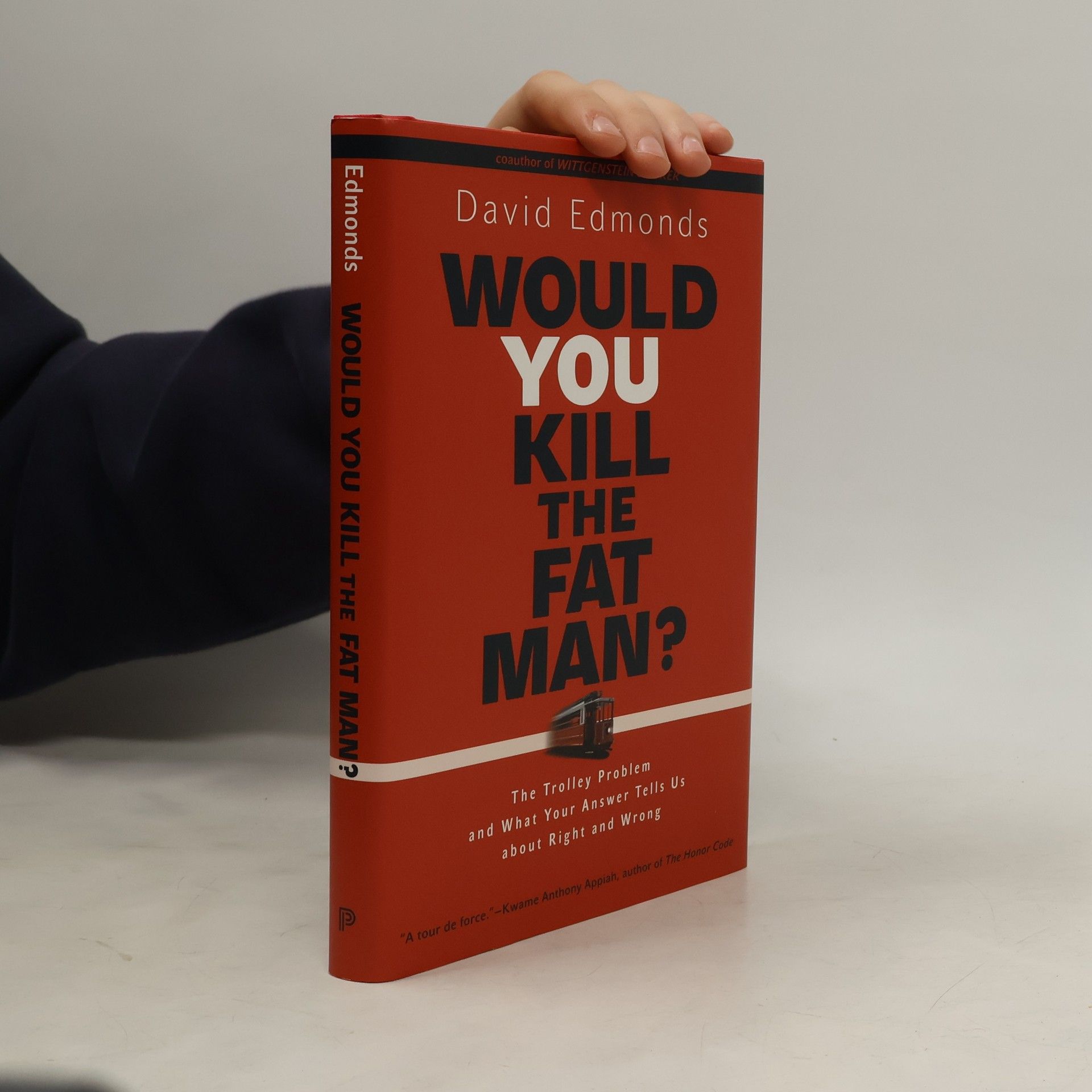David Edmonds Book order (chronological)






Compiling the best episodes of SAGE's 'Social Science Bites' podcast since its beginning in 2012, this pocket-sized volume will show you how social science can solve problems in today's society. Featuring a multidisciplinary and diverse range of interviewees, the book covers topics from racial inequality to moral psychology, the pandemic, and the prison system.
Derek Parfit (1942-2017) is a renowned philosopher whose work remains influential yet often overlooked. His 1984 publication, Reasons and Persons, is considered a philosophical masterpiece, focusing on the importance of prioritizing the common good over individual interests. The book is rich with detailed arguments and innovative thought experiments that challenge conventional notions of personal identity, the nature of reasons for action, and our responsibilities to future generations. Parfit advocated for a grand unified theory of morality, termed theory x, positing that major moral theories converge towards a single ethical truth. His impact extends beyond philosophy into areas like climate ethics, poverty alleviation, and charitable giving. In this comprehensive biography, Dave Edmonds explores Parfit's life and intellectual journey, portraying him as a pivotal moral philosopher of the last century. Despite his remarkable intellect, Parfit's life appeared uneventful, largely spent in academic institutions and focused on ideas. Edmonds reveals how this son and grandson of missionaries transformed from a sociable history student into a dedicated philosopher committed to moral improvement. He makes Parfit's complex ideas more accessible, bringing to life the thoughts of a thinker who captivated a generation of philosophers.
Die Ermordung des Professor Schlick
Der Wiener Kreis und die dunklen Jahre der Philosophie
Watch out, Brussells Academy - this robot will outwit you all! If super-high-tech android Dotty can spend an entire year masquerading as a twelve-year-old schoolgirl, she could win a multi-million-pound prize that will enable her creators to continue their ground-breaking work in the development of AI. Easy-peasy, right? As Dotty navigates the social expectations of Year 7 she gets into a series of hilarious scrapes, and encounters numerous ethical dilemmas both at school and at home. Then a boy in her class discovers there's a reward for outing the robot, and becomes intent on proving that Dotty is not who - or what - she says she is. To prevent herself from being discovered, Dotty needs to put into practice everything she has learned about being human. But will it be enough...?
"On June 22, 1936, the philosopher Moritz Schlick was on his way to deliver a lecture at the University of Vienna when Johann Nelböck, a deranged former student of Schlick's, shot him dead on the university steps. Some Austrian newspapers defended the madman, while Nelböck argued in court that his onetime teacher had promoted a treacherous Jewish philosophy. Weaving an enthralling narrative set against the backdrop of rising extremism in Hitler's Europe, David Edmonds traces the rise and fall of the Vienna Circle--associated with billiant thinkers like Otto Neurath, Kurt Gödel, Rudolf Carnap, Ludwig Wittgenstein, and Karl Popper--and of a philosophical movement movement that sought to do away with metaphysics and pseudoscience in a city darkened by and unreason."--
Would You Kill the Fat Man?
- 240 pages
- 9 hours of reading
Most people feel it's wrong to kill the fat man.
Philosophy Bites Again
- 320 pages
- 12 hours of reading
"27 leading thinkers on 27 intriguing topics."--Cover.
Would You Kill the Fat Man?: The Trolley Problem and What Your Answer Tells Us about Right and Wrong
- 220 pages
- 8 hours of reading
From the bestselling coauthor of Wittgenstein's Poker, a fascinating tour through the history of moral philosophy A runaway train is racing toward five men who are tied to the track. Unless the train is stopped, it will inevitably kill all five men. You are standing on a footbridge looking down on the unfolding disaster. However, a fat man, a stranger, is standing next to you: if you push him off the bridge, he will topple onto the line and, although he will die, his chunky body will stop the train, saving five lives. Would you kill the fat man? The question may seem bizarre. But it's one variation of a puzzle that has baffled moral philosophers for almost half a century and that more recently has come to preoccupy neuroscientists, psychologists, and other thinkers as well. In this book, David Edmonds, coauthor of the bestselling Wittgenstein's Poker, tells the riveting story of why and how philosophers have struggled with this ethical dilemma, sometimes called the trolley problem. In the process, he provides an entertaining and informative tour through the history of moral philosophy. Most people feel it's wrong to kill the fat man. But why? After all, in taking one life you could save five. As Edmonds shows, answering the question is far more complex—and important—than it first appears. In fact, how we answer it tells us a great deal about right and wrong.



